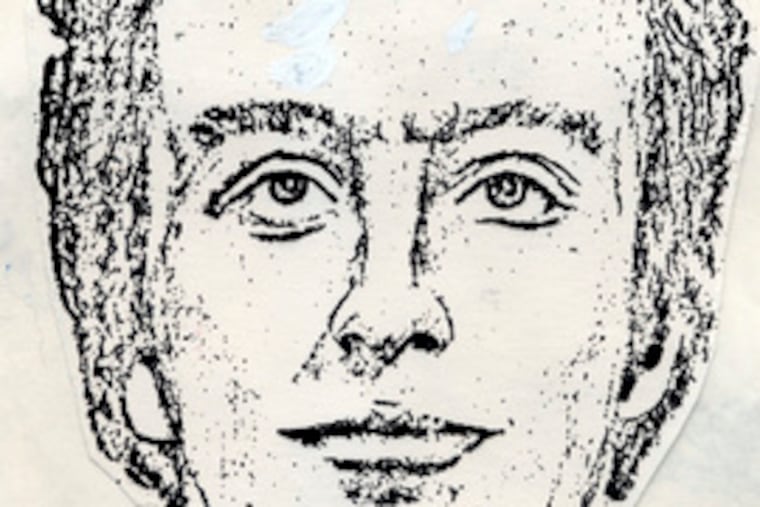Neil Ferber, wrongly jailed in '84
Neil Ferber, 63, who spent 14 months on death row in a mob-related murder he did not commit, died of a heart attack Saturday at his home in Northeast Philadelphia.

Neil Ferber, 63, who spent 14 months on death row in a mob-related murder he did not commit, died of a heart attack Saturday at his home in Northeast Philadelphia.
In 1981, Mr. Ferber was arrested in the murder of the mobster and cocaine trafficker Chelsais "Steve" Bouras and his dinner guest, Jeanette Curro. They were shot by two men while dining at the Meletis Restaurant in South Philadelphia.
Police initially suspected Mr. Ferber, a self-described con man who was friendly with a member of the so-called Greek mob, which Bouras led. They believed the killer had been hired in a battle for power among the mob's leaders. Mr. Ferber was arrested after a witness identified him from a composite sketch.
Mr. Ferber was convicted principally on the testimony of Gerald Jordan, a former cellmate at the Philadelphia Detention Center. Jordan said that Mr. Ferber told him he had been hired to kill Bouras.
When he was sentenced to death for the two killings in October 1984, Mr. Ferber told Judge Robert A. Latrone, "The only thing I'll say is that I'm innocent."
Mr. Ferber's family hired attorney Dennis J. Cogan to handle post-trial motions. Cogan said he believed Mr. Ferber was innocent but "had no idea" it would take years to prove. A break came, he said, when he got a call from Lt. Francis P. Friel, head of the Organized Crime Task Force in Philadelphia. Friel's mob informants had told him that the wrong man had been arrested in the Bouras case, and Friel began seeking evidence.
He discovered that police had given a polygraph test to Jordan, the jailhouse informant. Jordan failed the test but police never passed on the information to the District Attorney's Office. A new polygraph test was ordered by District Attorney Edward G. Rendell at Friel's urging, and Jordan again failed.
Cogan discovered other problems with the police investigation. According to findings made known at a later civil trial, a Police Department sketch artist and another officer conspired to frame Mr. Ferber by using a police mug shot of him to develop the sketch identified by the witness. The two officers denied wrongdoing.
On his last day as a district attorney, Rendell requested a new trial for Mr. Ferber. The same day, Latrone overturned the conviction. Mr. Ferber was freed the next day.
In 1996 the city agreed to pay $1.9 million to close the civil suit filed by Mr. Ferber. A jury had awarded $4.5 million for what Judge John W. Herron called Mr. Ferber's "Kafkaesque nightmare." The award was later overturned because of technical changes in the state's liability laws.
No one was ever charged in the case, but authorities came to believe that Bouras' killing was ordered by mob boss Nicodemo "Little Nicky" Scarfo, and set up by mobster Raymond "Long John" Martorano, because Bouras controlled a multimillion-dollar methamphetamine distribution ring that the Scarfo organization wanted to take over.
Mr. Ferber contended that he had suffered bleeding ulcers and a nervous breakdown because of his unjust imprisonment. "It will leave a scar on me for life," he told a reporter when he was released from jail in 1986. "It's inhumane. It's impossible to help yourself. The noise - they're screaming back and forth. My nerves are shot. It just feels great to be able to take a hot bath, shave when you want, and light your own cigarettes again." After his release, Mr. Ferber's case was aired on CBS's
60 Minutes
.
Mr. Ferber grew up in Northeast Philadelphia. After graduating from Northeast High School, he went to work for his father, Martin, who owned a furniture store in North Philadelphia. He eventually took over the store and relocated to Kensington. He was still operating the business when he was arrested.
After his release, he ran a heart monitoring business for several years.
Five years ago, Mr. Ferber moved from Bensalem back to his family's home in Northeast Philadelphia to care for his mother, Blanche. She died in July.
"He felt bad about what he put her through," said his brother, Jay. She had to go through the trauma of visiting her son in chains at Graterford Prison, his brother said, and "Neil never got it out of his mind how she had to beg for his life at his sentencing."
Mr. Ferber was a meticulous dresser and enjoyed watching old movies and documentaries. He walked five or six miles a day. "He said it cleared his mind," his brother said.
In addition to his brother, Mr. Ferber is survived by a son, Ronald Feiner; a sister, Shirley Zwanetz; two grandchildren; and his former wives, Kathy Shore and Annette Ferber.
A graveside service was yesterday at Mount Sharon Cemetery, Springfield, Delaware County.